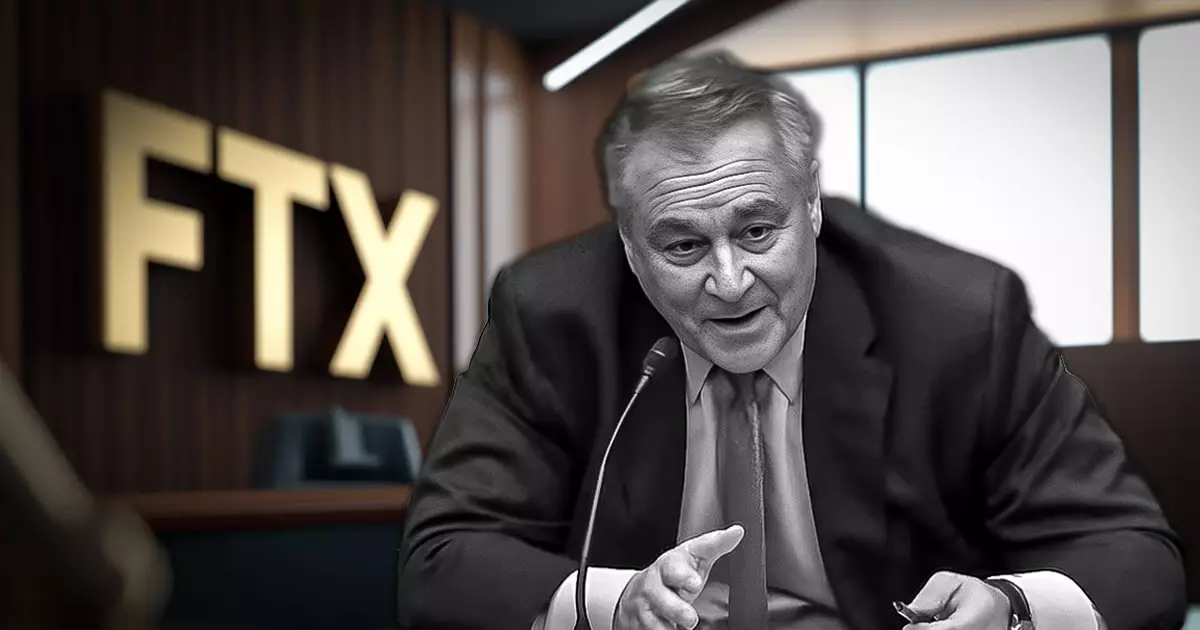In the tumultuous aftermath of FTX’s collapse, the legal landscape has become a complex battleground for asset recovery and accountability. Central to this narrative is Nishad Singh, the former engineering director of FTX, whose cooperation has become a pivotal element in the ongoing bankruptcy proceedings. While traditionally the focus in such cases tends to rest heavily on the culpability of individuals involved, FTX CEO John J. Ray III has taken a surprisingly conciliatory stance regarding Singh. In a letter addressed to the US District Court for the Southern District of New York, Ray passionately argued for Singh’s continued freedom, positing that his insider knowledge is indispensable to the recovery process.
Singh’s expertise is not merely theoretical; it has practical implications for the recovery of lost assets. His intimate understanding of FTX’s inner workings positions him as a vital asset in unraveling the complex web of transactions that led to the financial disaster. By assisting in the recovery of property in the Bahamas that was acquired using company funds, Singh has already demonstrated his value. Relying on his insights to connect the dots between various financial dealings offers a much-needed lifeline to FTX’s creditors, presenting a pathway to recovery that may otherwise be obstructed.
Legal Implications and Personal Accountability
It is essential to recognize the duality of Singh’s circumstances; he has pleaded guilty to charges associated with FTX’s mismanagement, including financial misconduct and violations of campaign finance laws. His admissions mark him as one of the first insiders to take responsibility, a move that has aided prosecutors in building their case against former CEO Sam Bankman-Fried. Singh’s legal team is now advocating for time served, emphasizing how his cooperation has clarified convoluted transactions and aided authorities significantly.
While one could argue that leniency should be meted out to Singh due to his assistance, this raises critical questions about the nature of accountability. Should cooperation outweigh the severity of the crimes committed? This dilemma underscores the broader tensions within financial regulation and the justice system involving corporate wrongdoing. Judge Lewis Kaplan’s forthcoming decision on Singh’s sentencing will serve as a litmus test for how such cases are navigated in the future, impacting not just Singh but potentially setting precedents for others embroiled in similar dilemmas.
The Broader Impact on FTX’s Bankruptcy Proceedings
Since its filing for Chapter 11 in November 2022, FTX has embarked on a formidable quest to recover stolen or misallocated assets. Under Ray’s guidance, the organization has begun tracing assets across international boundaries while attempting to clear the fog of transactions that intertwined it with Alameda Research. There have been some successes, recovering real estate and liquid assets that belonged to former executives, yet the road remains arduous and fraught with challenges.
Ray’s recent appeals emphasize that Singh’s ongoing role could significantly amplify recovery outcomes for creditors. In this context, the coupling of legal consequences with practical cooperation provides an interesting, albeit perplexing, narrative. The outcome of Singh’s case will not only influence how FTX’s creditors might recuperate their losses but will also speak volumes about the future of corporate governance and ethical standards in finance.
The unfolding saga of FTX demonstrates the often conflicting interests of justice, retribution, and systemic recovery. As we await the judicial outcome in Singh’s case, the implications are palpable—the decisions made in this instance may echo beyond FTX, potentially redefining how corporations navigate the treacherous waters of financial misconduct.















